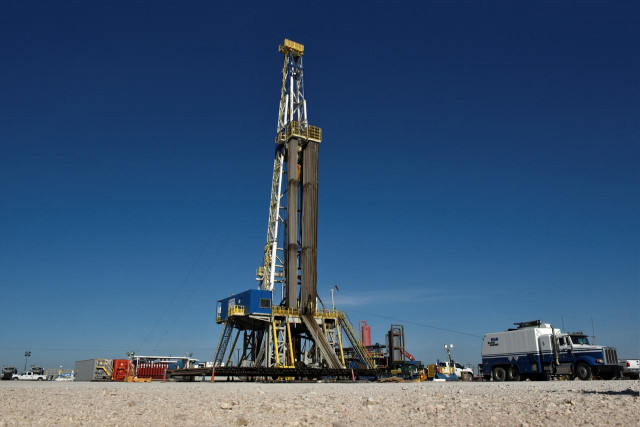How can oil prices be negative?
May WTI crude contract plunges as storage options run out

PHOTO: REUTERS
Many no doubt thought there had been a glitch when the May futures contract for US benchmark West Texas Intermediate (WTI) closed on Monday in New York at -$37.63. So crude oil producers were willing to pay someone to take the product off their hands. How could this happen?
The May WTI contract plunged as the contract was going to expire on Tuesday when the owner of the contract was technically supposed to take delivery of the crude.
And that is the problem: The oil storage terminal in Cushing, Oklahoma where WTI is delivered is nearly full given the ample US production and refineries slowing their output as gasoline demand drops.
Meanwhile, pipeline capacity to get it out is limited.
“The oil price reflects the economic value of oil less than the cost of storing oil,” said Stephen Innes, Chief Global Market Strategist at AxiCorp.
“As WTI requires physical delivery and storage is very expensive to access, the cost of storage in May exceeded the economic value of oil in the month.” Thus, traders were ready to pay others to take it off their hands.
Other US oil contracts have also turned negative recently as storage options run out.
The crash also called attention to the fact that most oil trading is in futures, not physical barrels of oil. With such a contract, the delivery of the commodity is carried out at a later date.
Futures trading help market participants by allowing them to lock into prices, either to sell or buy, but also allows for speculation.
Those who speculate on oil futures and never want to hold it had to get out of the WTI May contract before it expired on Tuesday, adding to the downward pressure.
It is instructive to look at the June WTI contract, which has also been falling, but was going for around $16.60 a barrel in afternoon European trading on Tuesday.
The major international benchmark, Brent, is already trading on June. It held around $20 on Tuesday but this is also considerably lower than even in recent days.
Holders of these contracts won’t need to accept delivery until June, when many hope demand for gasoline and jet fuel will pick up as countries ease their lockdowns.
But that is just an expectation, and much will also depend on what oil producers do.
Published in The Express Tribune, April 22nd, 2020.
Like Business on Facebook, follow @TribuneBiz on Twitter to stay informed and join in the conversation.


















COMMENTS
Comments are moderated and generally will be posted if they are on-topic and not abusive.
For more information, please see our Comments FAQ